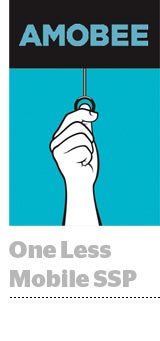 Singtel-owned Amobee is shuttering its supply-side platform and giving walking papers to a little less than 5% of its workforce. Headcount as of 2014 stood at roughly 600, according to CEO Mark Strecker in a previous interview with AdExchanger.
Singtel-owned Amobee is shuttering its supply-side platform and giving walking papers to a little less than 5% of its workforce. Headcount as of 2014 stood at roughly 600, according to CEO Mark Strecker in a previous interview with AdExchanger.
The mobile ad firm reached out to its third-party demand-side partners this week – Amobee works with more than 100 – in an email that was shared with AdExchanger to alert them that it will remove access to inventory on the Amobee Publisher platform as of Oct. 31 “in order to better serve the ongoing business needs.”
Amobee will sunset the mobile and display side of its exchange but maintain the video part.
A company spokesperson said the move was motivated by a need to streamline its “operational efficiency and best serve our global brand and agency clients.”
In order to do that, Amobee needs to be “fully focused and aligned on serving the advertiser.”
It’s tough being an exchange, let alone a mobile SSP, these days. Commoditization is a reality and buyers are starting to go direct. Taboola made a decision similar to Amobee’s when it shut down ConvertMedia’s legacy display exchange business shortly after acquiring the outstream video platform in August.
Amobee could just be cutting its losses and making a strategic move to go direct to publishers itself, serving agencies and advertisers with private marketplace-type deals rather than broad exchange buying and selling, which arguably diminishes the value of an impression.
It’s also possible that Amobee, which handled mobile inventory for AccuWeather, American Media Inc. and The Atlantic, had trouble scaling its publisher integrations. According to one demand-side platform, around 80% of Amobee’s traffic appeared to come from AccuWeather.
That same DSP told AdExchanger that the last time it paid out a significant amount of money with Amobee was in April, after which the dollar amount it spent halved month by month until it had dwindled down to just a few dollars in June and July. It could be that Amobee was preparing its demand-side partners for closing its exchange by slowly diminishing the amount of traffic it was sending.
From there, Amobee could seal its open exchange without too much pain for its partners and get out of the mediation and SSP game in order to focus on advertiser clients.
To that end, Amobee told AdExchanger that it “adjusted [its] workforce in areas of the business that do not serve that need, including the Amobee publisher solutions business.”











